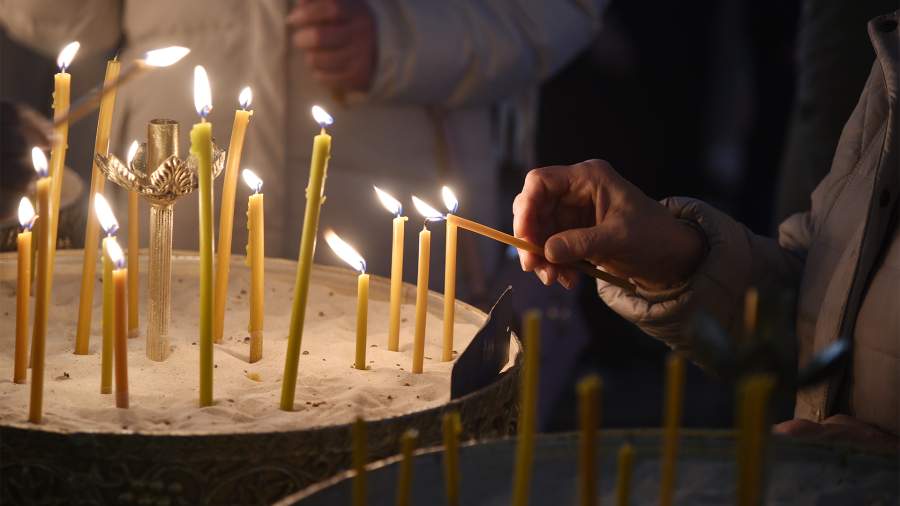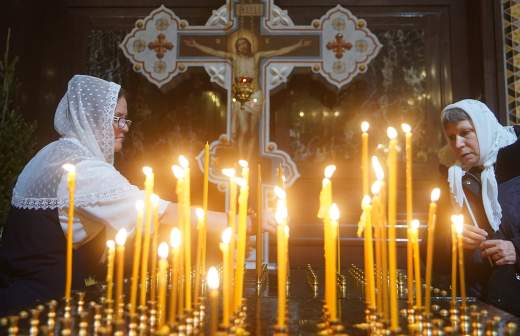December 6 - Mitrofanov Day: history, traditions, prohibitions

Every year on December 6, the Orthodox Church honors St. Mitrofan of Voronezh. In 2024, the celebration falls on Friday. In the folk calendar it is called Mitrophan's Day. On the history, traditions and signs of the holiday read in the material "Izvestia".
Mitrophan's Day - the history of the folk holiday on December 6
The Orthodox Church on this day honors the memory of St. Mitrophan, the high priest of the Voronezh diocese, who lived in the XVII-XVIII centuries. He came from a good family, married early, but at the age of 40 was unexpectedly widowed, after which he decided to go to the Zolotnikovskaya desert and take monastic tonsure. A few years later Mitrophan became the abbot of this monastery, and later became Bishop of Voronezh.
The name of this saint is associated with the strengthening of Orthodoxy in Russia, the struggle against Old Believers and the schism of the Church. The bishop proved himself as a defender of the poor and a talented administrator.
A special page in the biography of St. Mitrophan is his relationship with Peter the Great. He actively supported the reforms of the young tsar, considering them useful for the Fatherland.
It was Voronezh that became the key center for the creation of the Russian fleet at the end of the XVII century. Mitrofan actively supported this initiative, including materially. He organized the work of shipyards and took care of the spiritual "provision" of workers and sailors. As a sign of gratitude and in honor of the victory of Russian troops over the Turks at Azov in 1696 Peter I allowed the saint to be called Bishop of Voronezh and Azov.
However, the clergyman did not approve of the tsar's fascination with the pagan traditions of the "foreigners". There was even a serious quarrel between them when the saint refused to visit the Voronezh royal palace because of the pagan antique statues there. The autocrat threatened Mitrofan with execution if he did not obey. The bishop calmly accepted this decision and began to prepare for death, which shamed Peter - he removed the statues, and peace was restored.
Traditions and omens of Mitrofanoff day
Mitrofanov Day had a special meaning in the folk winter calendar. In Russia, festivities were organized on this holiday. Since at this time the Christmas fasting continued, as a treat it was customary to bake lean pies with cabbage, potatoes or mushrooms, to brew herbal teas. After that the feast began, accompanied by various games. Families gathered together and discussed plans for the winter months.
Villages also celebrated the establishment of a toboggan track in the snow. On this occasion, people organized sleigh rides.
People on Mitrofan observed nature and made predictions about the upcoming weather. Thus, snowfall and north wind heralded a cold rainy beginning of June, and a warm day promised a mild and short winter.
What you can and can not do on Mitrofanov Day on December 6
In Russia on December 6, it was customary to help the needy, as there was a belief that it brings good luck. People even had a saying: "If you help today, the Lord will pay back a hundredfold".
According to the beliefs, on Mitrophan one should carefully comb his hair to avoid confusion not only in his head, but also in his life. It was also supposed to do a general cleaning and light candles - it symbolized purification and transition to a quiet winter life.
But it was not supposed to make loud noise or quarrel on the holiday, as the day was considered a time of peace and quiet. It was undesirable to borrow money on this day, as they may not return to the previous owner.
Earlier "Izvestia" told about the traditions and omens of Prokopyev Day.
Переведено сервисом «Яндекс Переводчик»


